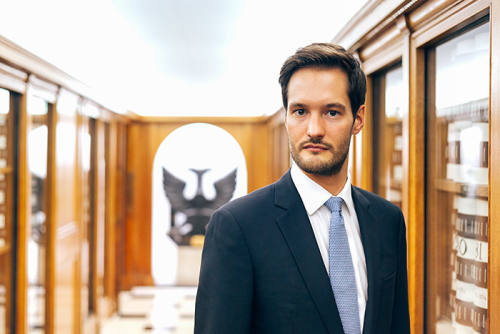Begin Scott Greenhalgh’s series on Understanding Impact Investing.
Testing the Potential for Impact Investing
It’s not often you hear businesses claim that they want to be copied and want competition. Yet this is the position that family-owned private bank C. Hoare & Co. took in 2016 when it launched Snowball investment vehicle.
Today, Snowball is a £15 million multi-asset vehicle invested in public and private funds that aim to achieve outcomes across the United Nations Sustainable Development Goals. It has target risk-adjusted returns of 3%-4% above inflation and a four-year track record. Put simply, it is an investment fund that can bring impact investing to ordinary investors across the UK.
For Rennie Hoare, partner and head of philanthropy at the bank C. Hoare & Co, Snowball investment is exciting. He sees it as the kind of innovation that a philanthropic financial family can lead, with the expectation that mainstream investment managers will follow.

Rennie Hoare, Head of Philanthropy at C. Hoare & Co.
The fund is constantly testing the boundaries of impact investment to show what can be achieved and, more importantly, how. By providing this test case, Rennie hopes others in the investment business will follow suit.
“We don’t want to be the only game in town. We want to be copied,” says Rennie.
Snowball investment was first conceived in 2011 when Alexander Hoare, former chief executive of the family bank, together with a small group of other not for profit asset owners including Friends Provident Foundation, Panaphur and Skagen Conscience Capital, considered how best to enable customers to go beyond philanthropy to deploy more of their money for social impact. They had each found there was not an existing product in the market that would allow them to access the level of impact they were looking for, and so created one themselves.
Seeded with investment from the family’s philanthropic endowment, the fund pioneered investing for financial return through social investment opportunities across fully diversified asset classes, fixed income, equity and venture capital.
With experience, it became clear to the Snowball team that impact investment could generate uncorrelated returns, providing the fund maintained a highly diversified range of investments. They are currently fundraising, with their longer term mission to create the snowball effect required to catalyse behaviour change across the investment industry and to make impact investing available to all investors.
Transparency about how impact is defined and measured has been core to the fund’s growth. Snowball seeks investments that intentionally target positive social impact aligned to the framework of the United Nations Sustainable Development Goals.
Intentionality is, of course, an abstract concept, so the team at Snowball have developed a bullseye approach to analysing the degree of intentionality in all its investments. This makes the concept more accessible and allows the team at Snowball to provide clear impact reporting alongside financial reporting for the fund.
Rennie highlights that Snowball investment has also forced the family and the bank to consider how impact investment can be positioned as part of a more traditional investment approach.
If you have other investments that make a negative impact on society, why bother with impact investment? Aren’t you just balancing out the negative impact from other investments, rather than actually creating a positive impact? And, how do you measure if you are having a net positive or net negative social impact overall?
The logical conclusion has been to shift to a “total portfolio impact” approach. By measuring social impact across all the family’s investments and philanthropy they can ensure a net positive result. In turn, this has created much greater awareness of the social impact of all their investment activities.
“If you want positive total impact, then investments and grant-making should both be delivering a net positive,” Rennie explains.
The next frontier will determine the wider appetite for impact investment. Currently, investment managers are somewhat sceptical about the viability of impact investment strategies. This is partly due to limited investment opportunities and partly due to lack of clarity about demand.
Having built a successful four-year track record with a diversified portfolio, Snowball is now tackling the second of these challenges. The fund opened to professional investors in October, marking a milestone towards the family’s ambition to open the fund to all investors in the future.
Rennie believes the short-term impacts of the Covid-19 pandemic will exacerbate the long-term global inequalities that underpin the Sustainable Development Goals, in turn creating greater demand for impact investments. According to the United Nations, it will take USD2 trillion – USD3 trillion per year to achieve the achieve the goals.
“Achieving the Sustainable Development Goals is even bigger than the challenge of Covid-19. For investment to make the impact it needs, it has to cross over into mainstream markets. If Snowball doesn’t get off the ground, it suggests that people don’t want it – but I don’t think the naysayers are right.”
To find out more about Snowball investment, please visit snowball.im or email: hello@snowball.im.